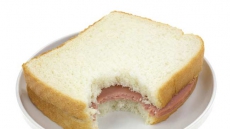As a psychiatrist working in the emergency rooms of two Vancouver hospitals, I witness firsthand the mental health crises that bring people through our doors daily, ranging from suicidal thoughts, psychosis, and drug addictions to depression, anxiety, and eating disorders. While I have seen improvement in many of the adults and seniors I treat, my work has deepened my passion for early intervention and mental health literacy, especially for children and youth. Young brains are far more plastic, and early support for their mental health can prevent crises later in life.
The COVID-19 pandemic was an eye-opener. While I anticipated a surge in mental health crises among children during the lockdown, it wasn’t until schools reopened that the numbers truly spiked. Research confirms this trend: children are more likely to experience suicidal thoughts during the school year than during the summer break. A 2013 American Psychological Association survey found that teens report their stress level during the school year far exceeds what they believe to be healthy (5.8 vs. 3.9 on a 10-point scale) and tops adults’ average reported stress level (5.8 for teens vs. 5.1 for adults).
The sources for this stress are varied—academic pressure, sleep deprivation, bullying—but the consequences can be deadly. One of my colleagues, Dr. Tyler Black, who works at BC Children’s Hospital, found that pediatric suicides increase by 30-43% during the school year, whereas adult suicide rates peak in the summer, as noted in Scientific American. This data underscores the urgent need to transform our school systems into more supportive environments.
Despite technological advances and the evolving job market (with the rise of social media influencers), our educational systems remain outdated. While mental health dialogue is gaining traction, it is not enough. I believe mental health education should be a mandatory and significant part of the curriculum. In my experience, the skills I learned during training in dialectical behavioral therapy (DBT), including emotional regulation, interpersonal effectiveness, distress tolerance, and mindfulness, have been far more valuable in life than the trigonometry and organic chemistry I was required to learn.
On a personal level, as I navigate parenting two children under three, I believe mental health education should begin even before school. With 90% of brain development occurring before age five, parents are often left without guidance on how to support their children’s mental health during these critical years. After spending 25 years in school, I find it ironic that my most important and challenging job—parenting—came with no training.
This realization has fueled my passion for creating mental health literacy tools for infants and toddlers. Noticing my children’s early interest in music, truly their first language, I began composing songs that teach emotions instead of traditional nursery rhymes. I share these on my social media profiles (@dr.hallibear), but I believe this is just one approach. As I see emergency rooms increasingly overwhelmed with patients struggling with mental health problems, I am convinced that we need more advocacy, research, and funding to transform our school systems and provide better resources for parents. I remain optimistic that if we prioritize these initiatives, we can reshape the future of mental health for our children and generations to come.
If you or someone you know is struggling or having thoughts of suicide, help is available. Call or text the National Suicide Crisis Helpline at 9-8-8, or reach out to the BC Mental Health and Crisis Response at 310-6789. You can also contact the BC Suicide Prevention and Intervention Line at 1-800-SUICIDE (1-800-784-2433).
HEALTH - Dr Priyanka Halli, MD, FRCPC, MPH, Psychiatrist and Clinical Assistant Professor at UBC







